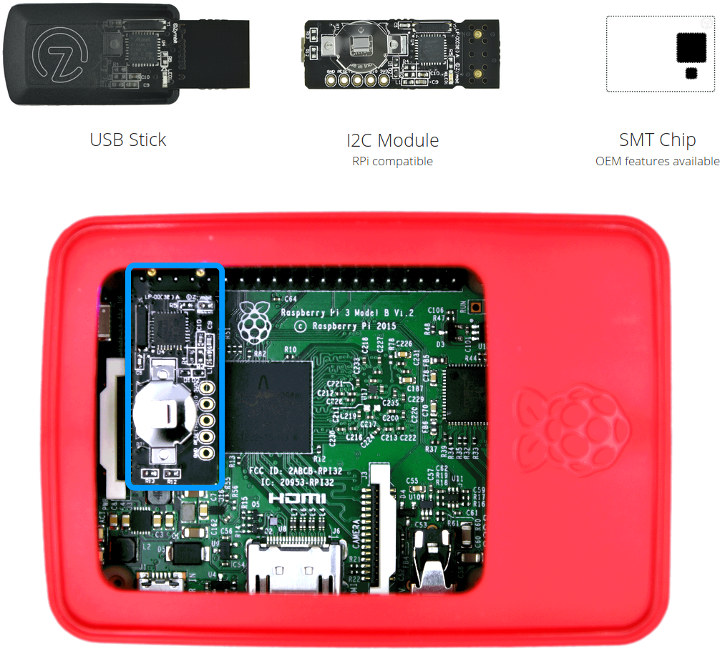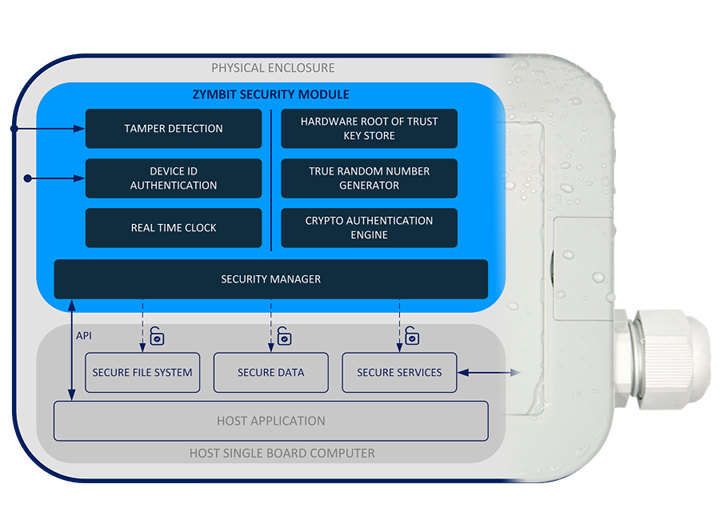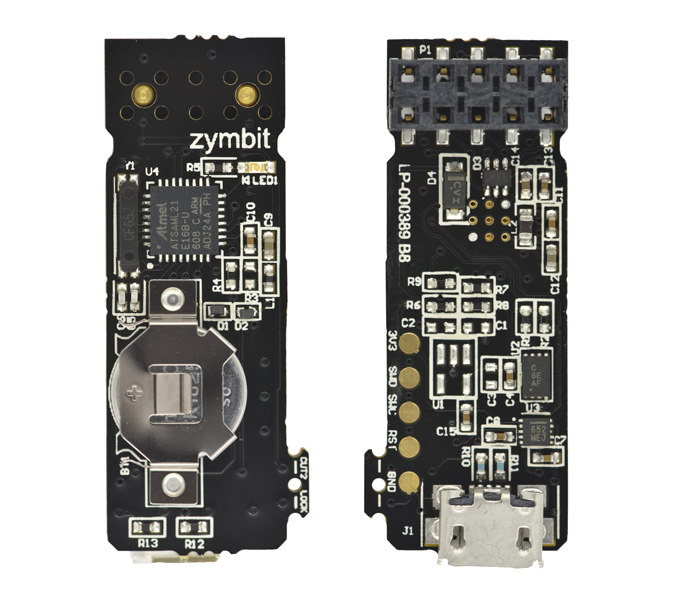Microchip ATECC508A CryptoAuthentication chip appears to be a popular way to add hardware encryption support to development boards, as we’ve seen previously with 96Boards’ Secure96 mezzanine or LoRa explorer kit, and even just earlier today with Analoglamb Fish32 Seed ESP32 education board.
Another solution is from Zymbit which provides Zymkey security modules for Raspberry Pi based on the ATECC508A CryptoAuthentication chip in different form factor: either a USB stick, an I2C module, or for further integration into your own design, an SMT component.

Zymkey enables multifactor device ID & authentication, data encryption & signing, key storage & generation, and physical tamper detection. It also features a secure element root of trust, a real-time clock, and a true random number generator (TRNG). The company provides a simple Python or C/C++ API to make it easier to add Zymkey support to any Linux application, and the secure module can be integrated with third party applications such as LUKS file encryption, OpenSSL, AWS IoT, or the Ethereum Blockchain. Instructions showing how to use Zymkey security module with a Raspberry Pi 3 board can be found in the getting started guide.
 They have two models of the I2C security module: Zymkey 4i going for $43 and available now, and if you need support for blockchain technology, Zymkey 5i can be pre-ordered for $47 with 32 unique key slots, and support for secp256K1 curves. The 5i model is expected to ship on September 15 onwards. The USB stick version appears to be an earlier product, and I could not find it for sale right now.
They have two models of the I2C security module: Zymkey 4i going for $43 and available now, and if you need support for blockchain technology, Zymkey 5i can be pre-ordered for $47 with 32 unique key slots, and support for secp256K1 curves. The 5i model is expected to ship on September 15 onwards. The USB stick version appears to be an earlier product, and I could not find it for sale right now.

Since the module simply fits into the section of the Raspberry Pi 40-pin header with I2C signals, an is controlled via a Python or C/C++ API, I suppose it should also be usable with other boards with the RPi header provided it mechanically and electrically fits.
You’ll find more details and purchase links for the I2C module on the product page.

Jean-Luc started CNX Software in 2010 as a part-time endeavor, before quitting his job as a software engineering manager, and starting to write daily news, and reviews full time later in 2011.
Support CNX Software! Donate via cryptocurrencies, become a Patron on Patreon, or purchase goods on Amazon or Aliexpress




